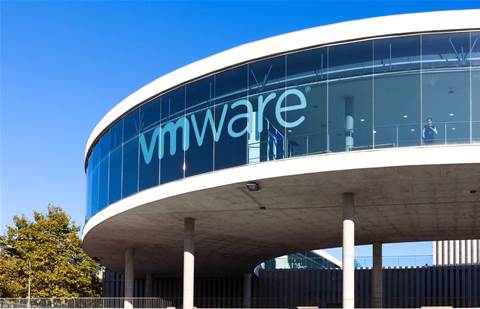VMware customers and partners should proceed with caution and pressure the vendor to make commitments around research and development and pricing before making further investments, following its acquisition by Broadcom Software Group.
That's the view of Gartner analyst Michael Warrilow who told CRN that channel partners and customers alike across Asia-Pacific should not expect business as usual once the deal settles later this year, according to Gartner analyst Michael Warrilow.
The virtualisation vendor last week agreed to be acquired by Broadcom for US$61 billion, where Broadcom Software Group will be rebranded VMware upon completion, with previous acquisitions CA Technologies and Symantec all folding under the brand.
“If CA and Symantec are anything to go by, there will be quite a lot of disruption. What Broadcom does is not innovate software but acquire software companies it believes are undervalued, and then improve that value by consolidating the back end,” Warrilow said.
“VMware is at 37,000 employees now, which means there’s two VMware employees for every one Broadcom employee, so they’ve grown and there’s a lot of scope for reduction in staff, particularly on the back end. That’s a proven way that Broadcom operates.”
Warrilow said the more concerning change would be Broadcom potentially bumping up VMware’s prices like it did in the past with CA and Symantec.
“[Broadcom] put up the prices of CA and Symantec considerably and Gartner clients have said that was very concerning for their environments.”
There are also question marks around research and development and whether Broadcom will continue it, as well as on supporting the channel.
Warrilow also expects that VMware will accelerate the move to subscription pricing, which he said the company was planning to do anyway before the deal was announced, and that Broadcom also made it clear that it would be the way the company will go.
While the core technologies like VSAN, NSX and vSphere/ESXi will likely to see continued investment, Warrilow said there’s a possibility that some of the other products may be discontinued or deprioritised.
“The channel will keep selling and supporting the core products, but for some of the products that VMware wanted the channel to also invest in like Tanzu, I think customers will be more hesitant to do so now because there may not be any investment in it,” he said.
Tanzu could also potentially be one of the products Broadcom might discontinue even if it was a strategic product for VMware, and management products like vRealize.
“VMware is such a foundation and it’s not going away, but it has introduced for the first time a question that didn’t arise in other big acquisitions like Dell acquiring EMC.”
Warrilow emphasised the importance of the channel and vendor alliances to VMware’s business, saying that the company cannot succeed without them.
“VMware has partnerships with everybody and that’s part of their success, and this deal would impact the IT infrastructure landscape for years to come.”
On the financial side of the deal, Warrilow said a large part of it was opportunistic since VMware’s and most other technology companies’ share prices have dropped 30 percent.
“Broadcom was clearly out there looking for those bargains and they won’t be alone, so you could see more consolidation - bigger fish buying medium fish, buying smaller fish,” he said.
For VMware’s competitors, Warrilow said someone like Nutanix would stand to gain from this deal, but the likes of Red Hat didn’t gain as much as some of its OpenShift customers have exited virtualisation.





_(21).jpg&h=142&w=230&c=1&s=1)

_(27).jpg&h=142&w=230&c=1&s=1)





.jpg&w=100&c=1&s=0)








_(1).jpg&q=95&h=298&w=480&c=1&s=1)


